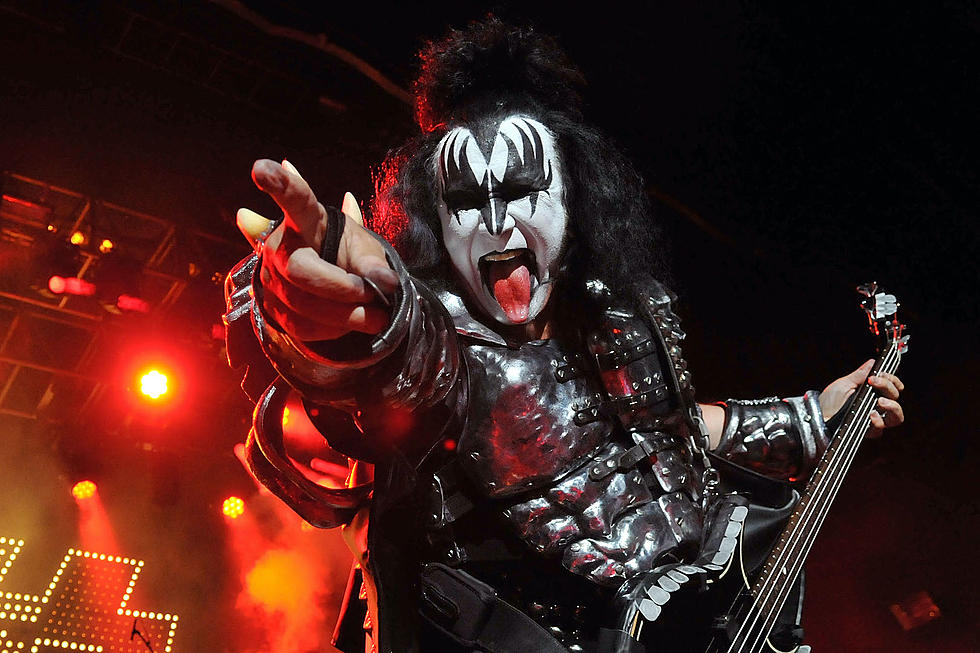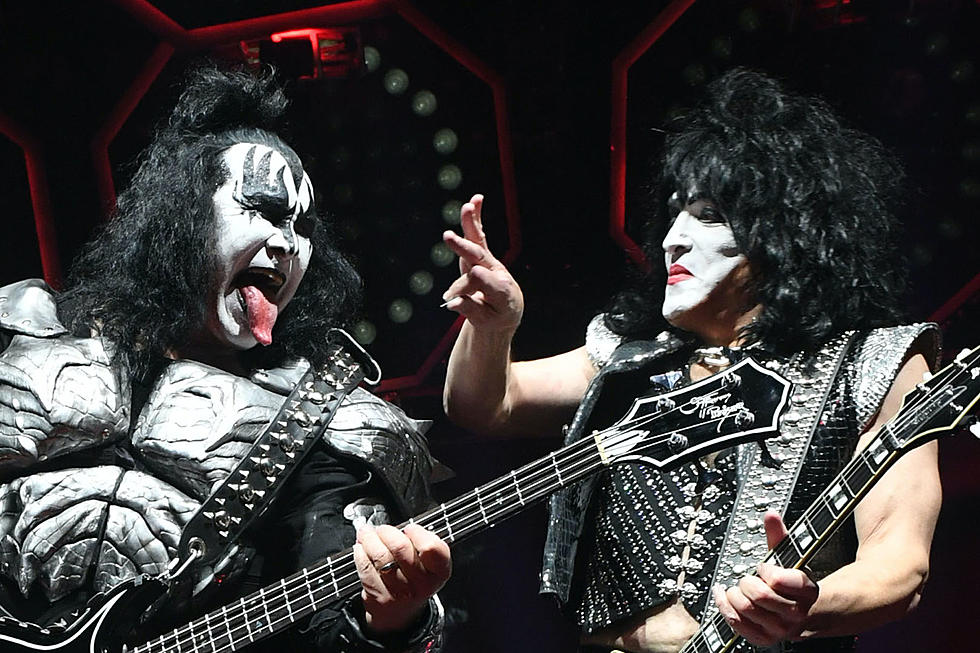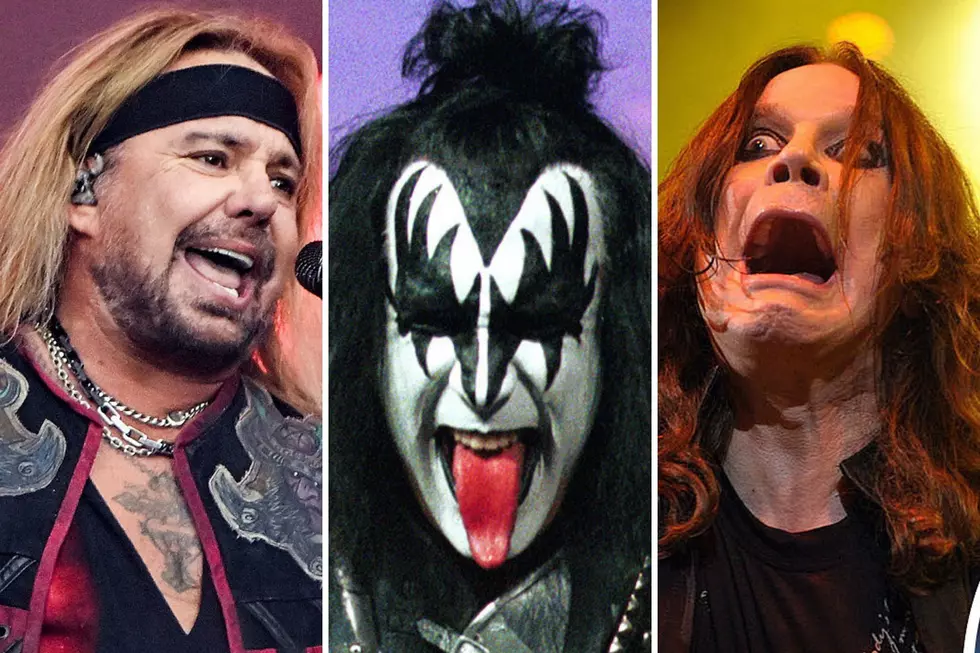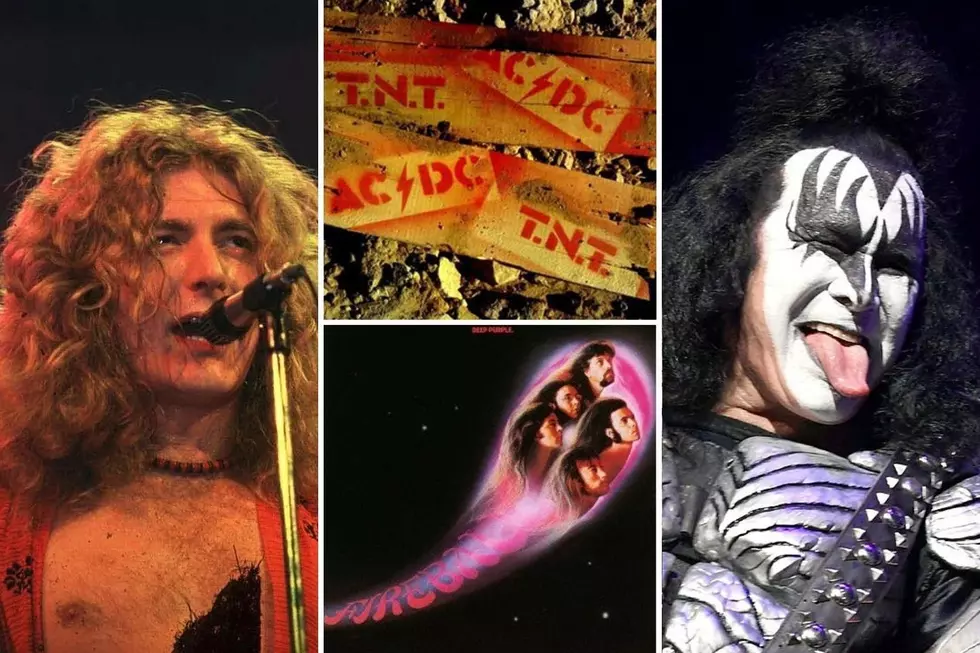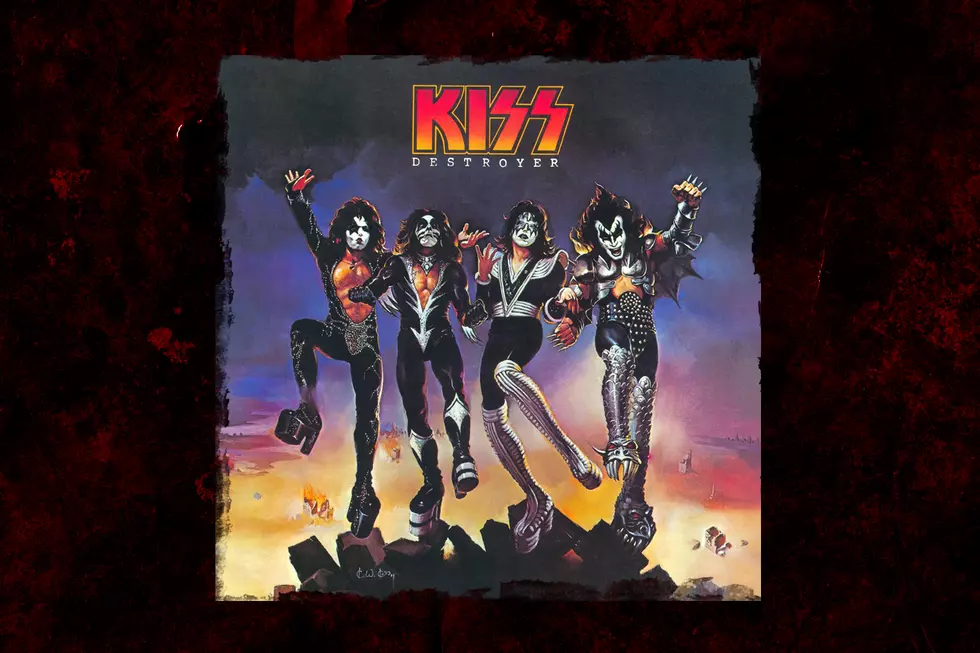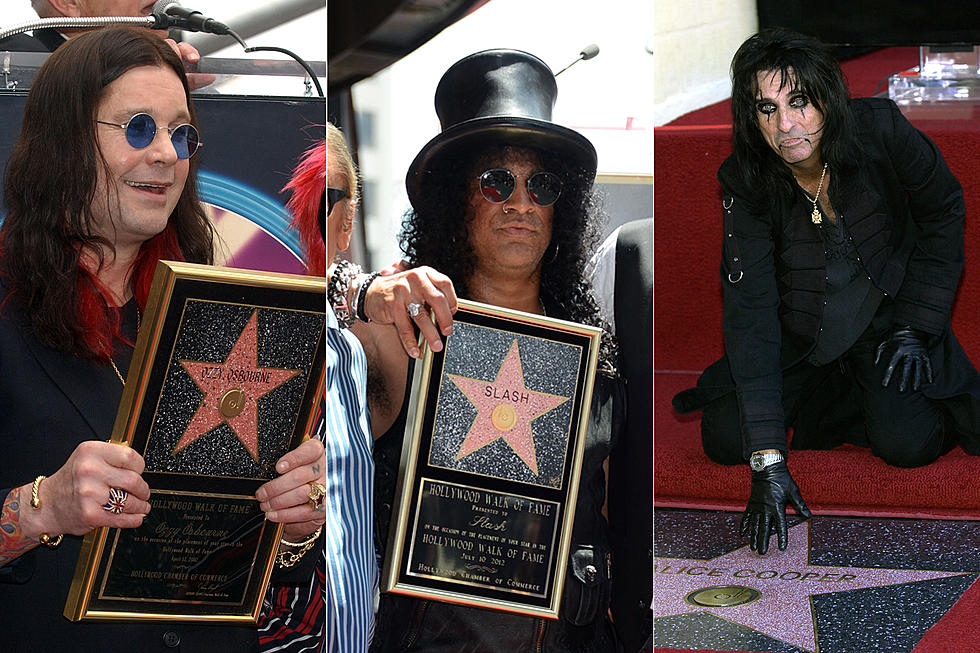
50 Years Ago – KISS Get to Work With Self-Titled Debut Album
Celebrating the 50th anniversary of the self-titled debut album by KISS.
“Whether planned or not, theatrics are always a part of rock and roll at its best,” KISS vocalist and guitarist Paul Stanley once told me. “We never put on makeup and used pyro or other effects to cover anything up. It was to enhance the presentation.”
In part, that explains why the band’s self-titled debut, which came out Feb. 18, 1974, was pretty much overlooked. Outside of a dedicated following in the suburbs, KISS were virtually unknown. And while the album included “Deuce,” “Firehouse,” “Strutter” and “Cold Gin,” which became career-spanning staples of KISS’ set, the songs remained unappreciated until they reappeared on the highly theatrical Alive! at the end of 1975.
“It struck me almost immediately that the recording didn’t sound at all like us live,” Stanley said. “What was put down on tape was such a timid fraction of what we were in concert. I didn’t understand it because bands who were our contemporaries had much better sounding albums. But we did manage to capture the piss and vinegar and the determination and devil-may-care attitude that was behind it. And I think the album still sounds contemporary. It sounds a lot like a lot of other bands who have probably cut their teeth on it.”
KISS, “Strutter”
Vocalist and bassist Gene Simmons and Stanley wrote most of the songs on KISS when they were in their pre-Kiss band Wicked Lester, which formed in 1971 and disbanded at the end of 1972. After recruiting new guitarist Ace Frehley and drummer Peter Criss, KISS tracked their first album at Bell Sound Studios in New York City with producers Kenny Kerner and Richard Wise over the course of three weeks.
“We were so green,” Stanley said of the sessions. “I was intimidated by the studio and intimidated by the idea of touching something and ruining the gear set up or ruining a take we were recording. The microphone might as well have been me singing into an elephant’s ass. It was something that was in the way. I felt so incredibly out of place.”
Compared to the band’s live show and later recordings, KISS sounds clean and glossy, as if the producers had just finished a session with Grand Funk Railroad and left the amp, guitar and control board set to the levels they were at before KISS entered the room. Even so, the quality of the aforementioned “Deuce, “Firehouse,” Strutter” and “Cold Gin,” as well as “Nothin’ to Lose,” with its glam piano, female background vocals and soaring guitar solo, the bluesy electric thunder of “100,000 Years” and the multi-textured, near-progressive, cowbell-enhanced rockfest “Black Diamond,” are unimpeachable.
KISS, “Nothin’ to Lose”
READ MORE: Why KISS' Dressing Rooms Always Smelled Like Burnt Toast
KISS knew they had the songs and the live show to win over the world. But for some reason they were scoffed at from the start by music journalists. “Critics, for reasons known only to them and their therapists didn’t want anything to do with KISS,” Stanley said. “It threw me because we clearly were undeniable. We clearly took what we did seriously and I think that was intimidating to a lot of people. I remember one review that was very funny because it was transparent and it was obvious what was behind it. But there was this review in Seattle that read something like, ‘this band called KISS better save their money because it’s going to be over as quickly as it started’ Well, I would dare to say he’s probably seen the food stamp line sooner than I have.”
It wasn’t just critics that didn’t flock to the party. KISS peaked at No. 75 on the Billboard album chart and only sold 75,000 copies before Alive! was released. In 1977, the album went gold, but that pales in comparison to many of KISS’ other records. Even in their hometown of New York City, KISS were dismissed at first as gimmicky and crass.
“What was so strange about that was we knew the bands that were being praised in New York and we killed them all,” Stanley said. “Those bands who were considered hip or who were the darlings of the New York scene spent more time at Max’s Kansas City or at clubs than they did learning their craft. The reason we weren’t considered hip or cool was because we didn’t hang out. We were – God forbid – practicing. We were rehearsing. Most of those other bands, their music became the soundtrack to a fashion show. We weren’t about that. We were about rock and roll. So we never really wanted to be a part of the New York scene and we were never embraced by it because we had ambitions. We had a work ethic. We took it seriously. That wasn’t cool back then.”
Naysayers couldn’t dismiss KISS for long. In April 1976, KISS earned their first platinum record for Destroyer and they would never look back.
Loudwire contributor Jon Wiederhorn is the author of Raising Hell: Backstage Tales From the Lives of Metal Legends, co-author of Louder Than Hell: The Definitive Oral History of Metal, as well as the co-author of Scott Ian’s autobiography, I’m the Man: The Story of That Guy From Anthrax, and Al Jourgensen’s autobiography, Ministry: The Lost Gospels According to Al Jourgensen and the Agnostic Front book My Riot! Grit, Guts and Glory.
More From Loudwire


